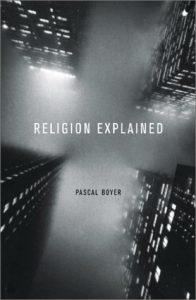As we noted recently, our historian friend Eddie Marcus made the following comment — I paraphrase:
Christians obsessed over the eucharist.
The reason we think it MUST have been Jesus was their obsession over it. ALL faith communities have this in common. . . — this bread and wine ritual obsession. Something triggered that. Easiest explanation for that ritual is that one person did it.
I don’t think so. I think the explanation that “one person did it” is the most difficult explanation.
And when the hour was come, he sat down, and the apostles with him. And he said unto them, With desire I have desired to eat this passover with you before I suffer: for I say unto you, I shall not eat it, until it be fulfilled in the kingdom of God. And he received a cup, and when he had given thanks, he said, Take this, and divide it among yourselves: for I say unto you, I shall not drink from henceforth of the fruit of the vine, until the kingdom of God shall come. And he took bread, and when he had given thanks, he brake it, and gave to them, saying, This is my body which is given for you: this do in remembrance of me. And the cup in like manner after supper, saying, This cup is the new covenant in my blood, even that which is poured out for you.
The reason I think it is difficult to imagine one person starting the ritual as per the gospel narratives is that such an explanation fails to take into account the nature of ritual itself. What is the eucharist, or Mass, or Lord’s Supper? Before taking up the question of origins it is surely necessary to first understand what it is that we are seeking to explain.
We know of stories where comrades in arms, after experiencing a traumatic bonding time together, solemnly vow to meet every year to commemorate those who did not survive and renew their friendship. I don’t think we’ve ever heard of any of those gatherings expand to include their children and subsequent generations, certainly not other friends, continuing the anniversary long after the original parties have died.
But you will be quick to say that that is not a fair comparison because there is no divinity involved. I would say that the comparison rather draws our attention to what it is we are seeking to explain. What is a ritual?
Scholars of religion, including anthropologists and psychologists, have identified special characteristics about rituals that are unlike other sorts of behaviour and emotional responses.
purity, purification, of making sure that participants and various objects are clean, etc.
(Boyer, p. 237)
Paul stressed as much when he wrote:
Wherefore whosoever shall eat the bread or drink the cup of the Lord in an unworthy manner, shall be guilty of the body and the blood of the Lord. But let a man prove himself, and so let him eat of the bread, and drink of the cup. For he that eateth and drinketh, eateth and drinketh judgment unto himself, if he discern not the body. For this cause many among you are weak and sickly, and not a few sleep. But if we discerned ourselves, we should not be judged.
1 Cor 11:27-31
Yes, as Eddie said, the early Christians “obsessed” over the eucharist. But what he failed to appreciate is that most people who observe the ritual today also “obsess” over it. That they did so in Paul’s day is not necessarily a pointer to the historicity of its etiological myth any more than today’s “obsessives” are evidence of the historical truth behind Luke 22:14-20.
But Eddie did come very close to what is actually the defining trait of the ritual when he spoke of obsessive interest. Continue reading “Religion Explained – Why Rituals (Explaining the origin of the Lord’s Supper)”

